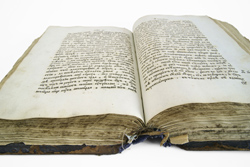Slavic languages to go digital
The diversity of Europe's languages is fascinating, and each should be highlighted for its cultural heritage, academic worth, and intrinsic beauty. Today, Slavic-based languages are spoken by a substantial part of Europe's population, but the language group lacks digital lexical resources. In light of this, the EU-funded Mondilex project is taking action. Mondilex is drafting a sustainable, scalable infrastructure for institutions involved in building a network of multilingual resources of Slavic languages. It is studying the challenges in developing, managing and reusing lexical resources in a multilingual context. Increased EU participation of countries whose language belongs to the Slavic group and intensified communication with non-EU Slavic countries has revealed the need for standardising digital bilingual and multilingual resources. Such an initiative has the power to facilitate exchange, particularly in education, business, and research. The project partners comprise research organisations from European countries whose national languages belong to the Slavic group – Bulgaria, Poland, Russia, Slovakia, Slovenia and Ukraine. Together, the relevant institutes are examining strategies for coordinating, unifying and extending current digital lexical resources, and creating new ones, in line with advances and standards in the field. Several workshops have been advancing Mondilex's objective. One workshop has analysed the needs of the partners for a common infrastructure supporting scientific and applied activities in digital lexicography. Another has studied the state of the art in digital lexical resources and requirements for their integration. Digital entry was also examined, as well as the representation of semantics, phraseology, etymology and related matters. These workshops and related research are helping to define a concrete plan of action that will realise the project's objectives. Eventually, a wealth of resources should emerge from this initiative: electronic and online dictionaries, both monolingual and bilingual, as well as thesauri, ontologies, wordnets, and much more.



